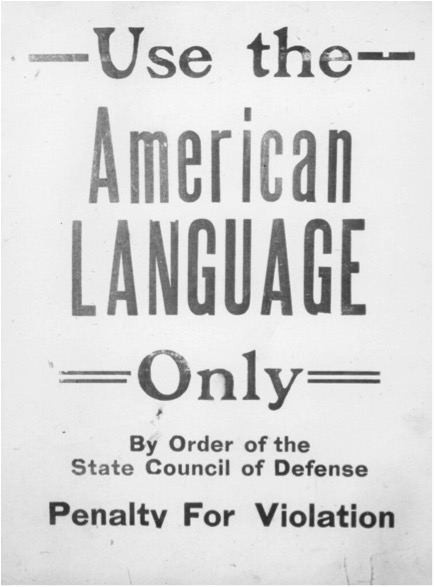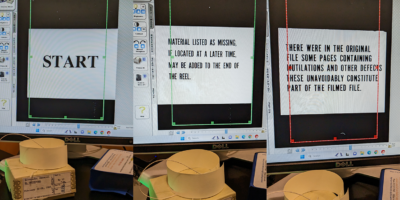by Dhipinder Walia
Dr. Asao Inoue, professor at the University of Washington-Tacoma, plainly shared with his Conference on College Composition & Communication (4Cs) audience: “Let me compassionately urge you to sit in discomfort: If you use a single standard to grade your students’ languaging, you engage in racism. You actively promote White language supremacy, which is the handmaiden to White bias in the world, the kind that kills Black men on the streets by the hands of the police through profiling and good ol’ fashion prejudice.” [1] Dr. Inoue, being the generous scholar that he is, offers his own strategy for “languaging that doesn’t kill:” labor-based grading contracts [2], a set of agreements with the class that emphasizes effort and process instead of a handful of scored assignments. Other scholar-teachers have suggested centering translingual practices which asks students “not whether [their] language is standard, but what the writers are doing with language and why.” [3]
And yet, even with so many scholar-teachers empowering myself and others to burn language hegemony to the ground, I stall when I reach this intersection of writing instruction and pedagogy conversations: “Aren’t we doing our students a disservice if we don’t teach them Standard American English [SAE]. They’ll need to know it in the real world” and “Students need rigorous writing instruction. They can’t just submit anything and expect it to pass.” To be clear, when I say stall, I don’t mean I agree with either of these seemingly innocuous rationalizations. To the first, I’d say “the real world” and “racist standards” are not one in the same, and insisting that they are ensures the standards remain intact and the world less “real” for most. To the second, I’d refer back to my MFA advisor who’d respond to my 80+ pages of writing with marginal comments on my need for more grammar instruction, proof that emphasis on imbibing SAE does not guarantee rigorous learning or rigorous feedback.
I stalled because prior to this semester, I thought of myself as just a practitioner, so I was never sure if my visceral aversion to “rigor” as a method of attacking inclusivity was grounded in anything academic or if it was “just personal.” [4] The conversation of language and writing assessment also stalled because I never involved the students I was teaching.
This past term, I did. I designed a low-stakes writing assignment for my English Composition course asking students to respond to an instructor who has written on her syllabus “All assignments must be written in Standard American English. Anything else will not receive a passing mark.” Wanting to make sure students understood they could respond with a firm, “I will not write in SAE…” I provided an outline of what their response should include,
- a sentence like, “I will/will not be using Standard American English when writing my assignments because…”
- another sentence like, “I will use…” (name the language you will be using, it can be a language that exists or that you create. Consider sharing why you’ll use this language)
- another sentence like, “Here are the rules to the language I will be using…”,
- and finally a sentence like, “I believe you should still pass my assignments because…”
The responses are incisive and cut through academic jargon. According to these students, SAE should not and can not be the only mode for delivering assignments because:
- The idea of a standard mode of communicating is as violent and restrictive of an idea as a standard mode of existing. As one student put it, “We need to free ourselves from believing there is one right way to do certain things or one “normal” way of conducting certain things…Writing this paper on my portable laptop was not a “norm 15 years ago.” Things have changed and with things changing we must learn to adapt and change with it instead of practicing things that will eventually be outdated.” [5]
- To expand assessment to include other ways of knowing and learning is not less rigorous. In fact, it might demand more rigor from both the writer and the reader. Consider the breakdown of rules a student provides for the patois she will use in writing assignments: “In the plurals in the Standard English it is usually formed by adding es or s to the end of a word for e.g. Glass (glasses) or car (cars) etc. However in patois we pluralize words by adding “dem” to the END of a word or “nuff” or a number to the beginning of a word. E.g., Bwoy dem (boys), Plate dem (plates), Nuff orange (oranges), 15 teacha (15 teachers) etc. The language can become a bit confusing but when spoken at a slow pace it is not hard to catch on to.” [6]
- Inclusive linguistic practices create possibilities for new ways of knowing, learning, and being. Consider another student’s reflection, “Some phrases lose their meaning when translated. For example, when I would tell my mother to speak “proper English”, she would always respond in Patois: “Mwen ka palé en lang mama mwen.” When translated word for word it says, “I am speaking in my mother’s tongue.” The saying in Patois has a lot more depth, I am speaking in the language that my mother taught me – who are you to tell me that it is not proper English?” [7]
These student responses taught me that I am allowed to call bullshit the next time another instructor tightens their jaw and suggests my inclusivity is creating a generation of “unskilled” writers. Asking students to reflect on their linguistic repertoire, decide how they’ll negotiate different ways of communicating in written assignments, teach others about the inherent logics within their writing, are tasks that require more than just “rigor,” they require a willingness to interrogate supposedly stable terms like, “standards,” “knowledge,” and “language.”
As a final note, I’m not suggesting my English Composition courses ignore grammar. I never was. I’m instead suggesting assessing student writing based on standard American grammar alone is antithetical to rigor (and not as many would like to believe, a way towards rigor). As I plan my syllabi for next semester, I want to incorporate readings and assignments that confront the stability/normalization of Standard American English and illustrate more inclusive (dare I say, more rigorous) ways of learning and knowing.
Dhipinder Walia is a PhD candidate in English and teaches English Composition, Creative Writing, and Asian/American literature at Lehman College, CUNY.
Notes
[1] Experience Inoue’s entire speech here
[2] Example of labor based contract
[3] Horner et. al, Language Difference in Writing: Toward a Translingual Approach, see also Carmen Kynard’s post, “Savage Monolingualism”
[4] Spoiler Alert: After much therapy, discussions with other female colleagues of color, and a semester in the English PhD program, I realized my uncertainty was a symptom of institutional codes.
[5] From Fall 2019 composition student, Antonia Burt’s “Standard American English” submission
[6] Ibid
[7] From Fall 2019 composition student, Deidra Joseph’s “Standard American English or Nah?” submission










Leave a Reply